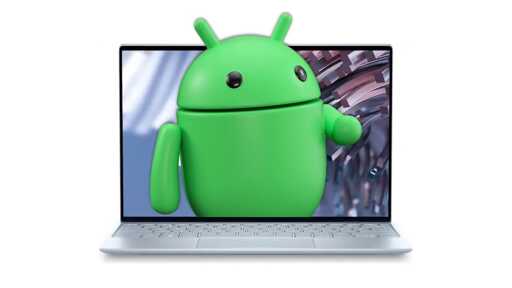Oh oh, I know the answer to this one! No.
What a stupid headline. Negative clickbait (it makes me want to click elsewhere).
There’s an axiom that every single news headline on the internet that ends in a question to the reader can be accurately answered with “no”.
Betteridge’s law
No.
No
That’s just linux with extra steps
You misspelled “enshittification”.
Can’t call yourself a desktop when you can’t even install a .apk without google’s permission
With the way things are going on the mobile Android side and hope Google get fucked.
No it’s not largely because of Google mocking around with it.
Just install Linux stop trying to make Android desktop a thing. It’s not going to be a thing and no one really wants it to be a thing anyway. Move on.
But Google can’t control Linux. They can control Android. That’s the only reason they’re pushing it.
Android will never be a serious desktop operating system, and the reasons are pretty fundamental. You don’t have admin rights by default, which means you can’t truly control your own machine the way you can with any real desktop OS. Everything has to go through Java interfaces in the end, even when you try to use the NDK for native code. There’s this constant layer of middleware sitting between you and what you actually want to do, adding overhead and limiting what’s really possible.
Compare this to Linux, Windows, or macOS where applications can directly access system resources when needed. You can compile native code that runs at full speed without virtualization layers. You can modify system files, install kernel modules, and actually own your computing environment. Android treats you like a guest on your own device. But the real dealbreaker is the complete lack of proper driver support. Try plugging in a WiFi dongle, a professional scanner, a printer that isn’t mainstream, or a racing wheel. You simply can’t install drivers for custom devices the way you can on Windows, Linux, or macOS.
Android’s driver model is closed and locked to specific devices, not open to the kind of hardware ecosystem that desktop users have always relied on. On a real desktop OS, manufacturers can write drivers, users can compile them, and the community can support obscure hardware for decades. Android doesn’t work that way and never will.
The whole architecture was designed for mobile consumption, not desktop creation. Professional software needs low-level system access and real performance without layers of abstraction getting in the way. Desktop OSes give you real file systems you can navigate freely, package managers or installers that put files where they need to go, and proper background processes. Android hides all of this behind its sandboxed app model. People keep talking about Android on desktops, but bolting on some desktop features doesn’t fix these fundamental architectural problems. It’s a mobile OS, and that’s what it will always be.
I dunno why everyone is so skeptical.
If it does Android apps, it’s got everything ‘normal’ users could want. It’s got a massively anticompetitive megacorp behind it. It’s ‘lean’ and runs on cheap computers and is compatible with work stuff. And it doesn’t bork itself with spam like Windows does.
…How could it not catch on?
99% of the population doesn’t actively seek out modularity of privacy, many don’t really know concepts like filesystems, URLs or desktops anyway. They get what’s cheapest in Best Buy, and that’s about to be Android laptops, if Google desires that.
They already tried it with Chromebooks.
The ONE GUY in this thread who gets it. Consumers want to go online. They want to browse the web. Watch youtube. Go to facebook. Check their G-Mail.
Thats about it.
Everyone else in this thread is like responding from the perspective of “Will Android as a desktop OS work FOR YOU?”
And that’s not what’s being asked here. What’s being asked is if this would work for the masses.
In the 1940s, Japan underestimated the USA. They sent spies to look at Pearl Harbor months before the attack. They reported home with real accurate information. Their mistake was NOT intel gathering. They had the right correct information.
The mistake was thinking that USA used their navy vessles in the same way Japan did. Japan ran small efficient crews. Fast, efficient, stealthy. But small.
So when Japan got their intel on how the USA was operating they estimated the number of navy forces based on real data, but estimated the number of human forces based on their own policy. They miscalculated how many navymen were in service by 800%.
So they made the same mistake people in this thread are doing. Assuming others would apply the same line of thinking and way of doing something that they would.
When in reality, there are 8 billion different individual people on this planet right now. And with that comes 8 billion different ways to think.
Most people won’t pass over an Android OS just because the file structure or privacy settings aren’t to YOUR liking.
🤣
no
🤣
This comment has Bender “oh you’re serious” energy and I love that about it.
lol
Hopefully not
No but I could see SteamOS taking this crown in the long run
Yeah if there will be a new OS pushing into the market, it will be SteamOS.
No.
It’ll be about as significant as chromeos so good for schools while professionaland enthusiast stuck working on them will do so by running regular Linux applications like you do on chromos. I’d say it’s a stronger plus for Linux desktops than Android. Google really can’t get out of their way with their NIH syndrome for desktops. Like 15 years of attempting to do desktop Linux but in a way users likely won’t use the Linux desktop designed and often free software. I’d love to see this introduce people to Digikam, Darktable, Krita, GIMP, Kdenlive at the expense of Google Photos and adobe apps








